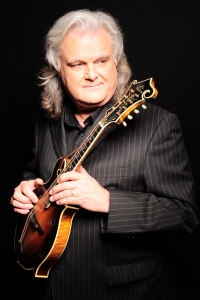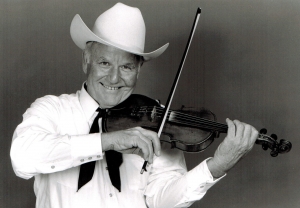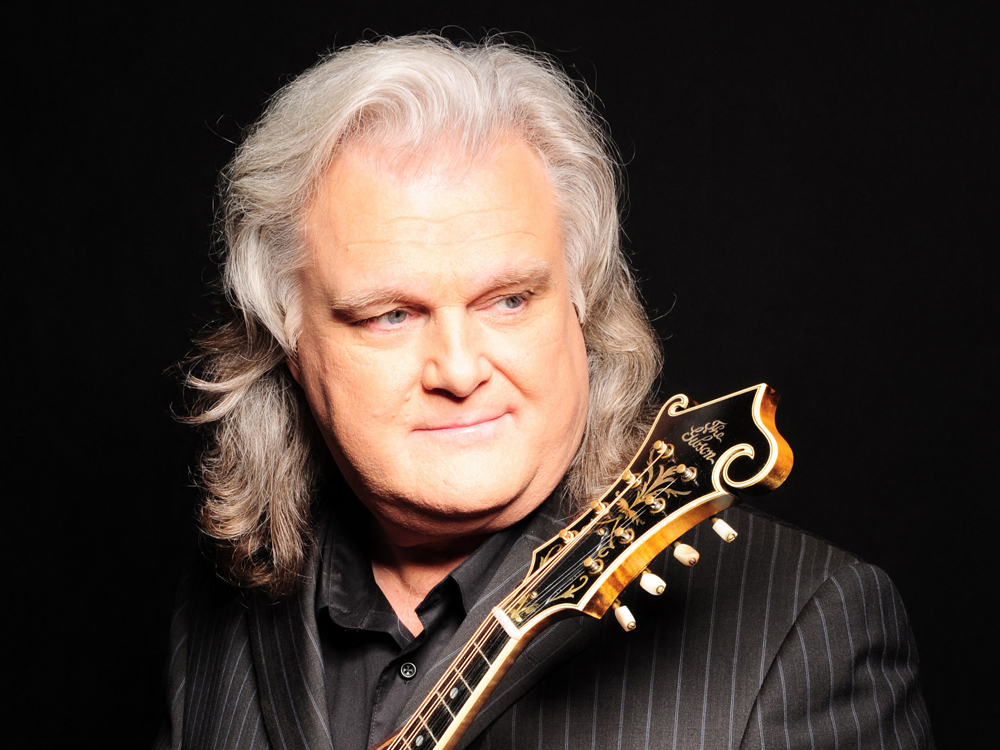The Country Music Association announced its 2018 Country Music Hall of Fame inductees on March 27:
- Modern Era: Ricky Skaggs
- Veteran Era: Dottie West
- Musician: Johnny Gimble
Ricky Skaggs

As far as a pioneer, Ricky Skaggs is one of the great innovators and trailblazers of modern country. Ricky led the fight to bring country music back from the depths of Urban Cowboy and pop-infused country in the early 1980s. He helped pioneer the era’s neo-traditionalist movement, drawing upon his heroes like Bill Monroe and Ralph Stanley. Fusing the contemporary sounds with a notable touch of bluegrass, Ricky made traditional country popular again, even racking up a No. 1 hit with a remake of Bill Monroe’s “Uncle Pen.” The decade soon gave way to more traditionalists who followed Ricky’s lead, including Randy Travis, Hank Williams Jr. and Keith Whitley. No less a figure than the legendary Chet Atkins once credited Ricky for “single-handedly” saving county music.
And his influence? To start, Ricky’s outstanding musicianship—he plays mandolin, guitar and fiddle, among others—has placed him in a different class of artists. Not only could he write and sing the songs, he could play them with a feverish ferocity. His versatility and almost jazz-like improvisational playing has certainly influenced the likes of Vince Gill and Brad Paisley, along with countless bluegrass artists.
In the last 15 years, Ricky has turned his creative attention more toward bluegrass and Christian music. Indeed, most of his Grammy honors have been earned in the bluegrass field as he helped bridge the gap between the sounds of Appalachia and the stylings of Music Row.
Ricky has also been a progressive reformer through his collaborations with artists from genres well beyond the country boundaries. He has recorded critically praised efforts with pop icon Barry Gibb of The Bee Gees and rock standout Bruce Hornsby, who has often joined Ricky on tour. Through these various pairings, Ricky has undoubtedly brought new fans to country music.
Ricky earned eight Country Music Association Awards (including Entertainer of the Year in 1985) and 15 Grammy awards. He was a member of both Ralph Stanley’s Clinch Mountain Band and Emmylou Harris’ famed Hot Band.
Dottie West

Born Dorothy Marie Marsh on October 11, 1932 near McMinnville, Tennessee, she endured an abusive childhood at the hands of her father while working as a teenager in her mother’s restaurant. Music became her outlet to escape the real world, as she began playing guitar with a local band while in high school.
After graduation, she continued her education with a music scholarship at Tennessee Technological University in Cookeville. It was there she would meet Bill West, whom she would marry. The young couple moved to Cleveland, Ohio, where she began to appear on a local television program. All the while, West continued to keep her heart and mind focused on that musical mecca just a few miles up the road from her hometown – Nashville.
She made repeated trips to Music City in hopes of getting her songs heard throughout the 1950s. By 1959, she achieved her goal – a recording contract with Starday Records. Though recording success would elude her there, her compositions began to be heard around town, as she toured and became friends with such performers as Patsy Cline.
In 1963, superstar Jim Reeves recorded her song “Is This Me?” and the song became a No. 3 record on the Billboard Country singles chart. She soon signed with RCA Victor, where she recorded with Reeves on “Love Is No Excuse” and then hit solo stardom with the self-penned “Here Comes My Baby.” The song helped West become the first female artist in Country Music history to win a Grammy and launched a run of hits that included “Would You Hold It Against Me” and “Paper Mansions.”
Two of West’s hits for RCA Victor – “Country Girl” and “Country Sunshine” – were featured in television campaigns for Coca-Cola, with the latter winning a coveted Clio award for television advertising.
In 1976, West signed with United Artists Records, where she found an immediate hit with “When It’s Just You and Me.” Not long after, she was finishing up a recording session one afternoon when the next artist who happened to show up early was Kenny Rogers. The two began to harmonize on a song that she was going to record, and the rest was history. That record, “Every Time Two Fools Collide,” topped the charts in short order and served as the catalyst for a pair of Gold-selling albums, back-to-back CMA Awards for Vocal Duo of the Year, and one of the most successful tours in Country Music history.
The duets with Rogers also propelled West’s solo career to new heights, with songs such as “Are You Happy Baby?” and “A Lesson In Leavin’” becoming fan favorites. In addition to her own recorded work, she was instrumental in the careers of several other artists, musicians, and songwriters including Grand Ole Opry members Larry Gatlin, Jeannie Seely, and Steve Wariner. As she entered her fifties – an era where women in the format typically slowed down – she continued to plow ahead in new creative fields including film and theater.
On her way to an appearance on the Grand Ole Opry in August of 1991, West was involved in an automobile accident. Despite three surgeries, and a valiant fight for her life, she succumbed to her injuries at the age of 58. Now, the career trajectory of Dottie West places her in the same destination that her previous duet partners of Jim Reeves, Kenny Rogers, Don Gibson, and Jimmy Dean have landed – the Country Music Hall of Fame.
Johnny Gimble

Johnny Gimble was born May 30, 1926 in Tyler, Texas. The music bug bit him early, as he was playing the fiddle by age 10. Before the 1940s, he was playing professionally as a member of a band called the Rose City Swingsters alongside his brothers. One of his early gigs was playing music during Jimmie Davis’ campaign for Governor in Louisiana. After serving his country in World War II, Gimble returned to his native Lone Star State and performed on local radio shows. His musicianship would merit the attention of Bob Wills, who hired him to be a member of his Texas Playboys in 1949, an association that would last on and off through the 1960s.
His fiddle work would be heard on hundreds of classic hit recordings over the years, with Marty Robbins’ 1952 chart-topper “I’ll Go On Alone” being one early example. His tasty licks would grace classic hits from Connie Smith and Conway Twitty. In 1970, Gimble added his touch to Merle Haggard’s seminal A Tribute to the Best Damn Fiddle Player in the World (or, My Salute to Bob Wills). Over the years, Gimble’s work was heard on television series such as “Hee Haw” (where he was a member of the Million Dollar Band) and “Austin City Limits.” He was also a key element of the 1973 disc Superpickers from Chet Atkins, which featured (in addition to Atkins) Country Music Hall of Fame members Hargus “Pig” Robbins and Charlie McCoy.
In 1979, Gimble once again took on the role of a road musician, with a two-year stint in Willie Nelson’s band – also appearing in the singer’s “Honeysuckle Rose” film. In 1982, he went in front of the camera to portray the man who gave him his first major musical break – Bob Wills – in the Clint Eastwood theatrical release “Honkytonk Man.”
All along the way, Gimble continued to make melodies with his fiddle that found their way into the hearts of millions of Country Music fans around the world. In 1983, a rising young artist who grew up enamored by the music of Wills named George Strait utilized Gimble’s magic on his Right or Wrong album. This working relationship would prove to be one of the longest associations of his career. He would appear on 10 of Strait’s albums through 1992, becoming a key part of Strait’s early sound on such hits as “Baby’s Gotten Good At Goodbye” and “All My Ex’s Live In Texas.”
Gimble’s work earned him 15 CMA Awards nominations, including 14 nominations for Instrumentalist/Musician of the Year from 1975 through 1990. He won five times, in 1975, as well as 1986-87, and 1989-90. Along the way, he also tallied two Grammy trophies.
Johnny Gimble died on May 9, 2015 at the age of 88. Fans can celebrate the collection of legendary musicians as it grows a little larger with the induction of Johnny Gimble into its hallowed ranks.
photo courtesy of Absolute Publicity







